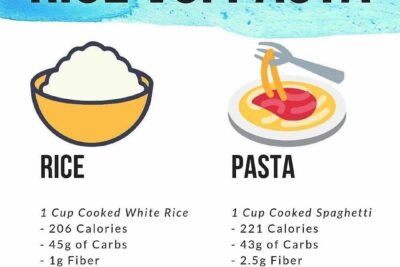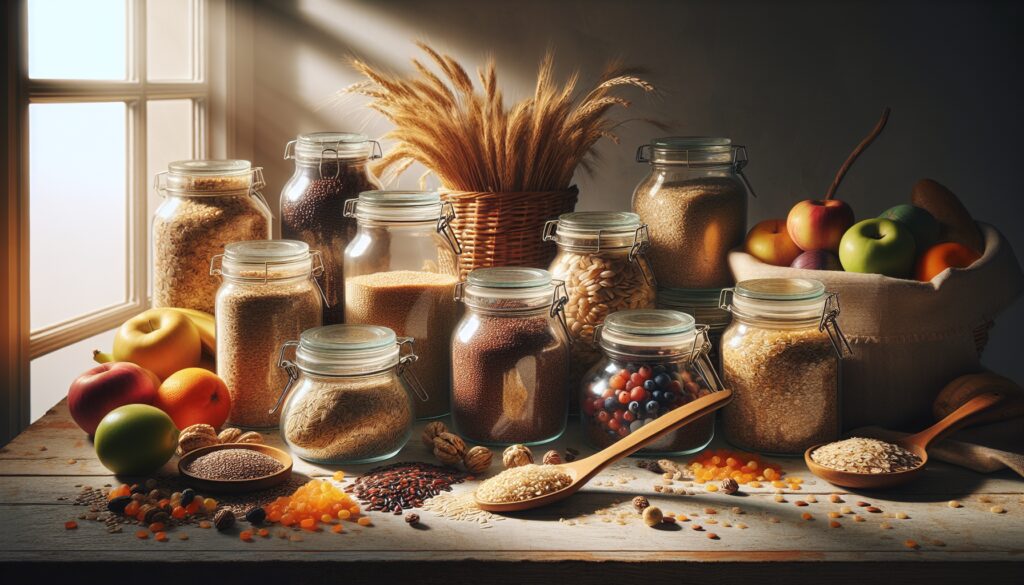
Whole grains are a fundamental element of a nutritious diet, offering a variety of health benefits. From managing weight to improving heart health, healthy grains can be a tasty and versatile way to enhance your overall wellbeing.
Including a range of grains in your diet not only provides essential nutrients but also introduces delightful textures and flavors to your meals. Let's delve into the world of whole grains and discover how they can contribute to a healthier lifestyle.
🔍 Seeking a breakthrough in Type 2 Diabetes management?
Discover our expert insights and innovative approaches on ‘How to Cure Diabetes’.
Click to transform your health journey today!
What you\'ll find in this article?
What are whole grains?
Whole grains consist of the entire kernel, which includes the bran, germ, and endosperm. Unlike refined grains, which have been stripped of the bran and germ, whole grains retain all of their nutritional value. This means they are rich in fiber, vitamins, and minerals that are essential for optimal health.
Consuming whole grains as part of a balanced diet can lead to improved digestion and a lower risk of chronic diseases. It's important to understand what defines a whole grain to make informed choices when shopping and cooking.
Whole grains are the healthier choice, offering more nutrition than their refined counterparts. Including a variety of grains in your diet ensures you receive a wide spectrum of nutrients.
Explore our specialized services in diabetes care 🌟.
From personalized diet plans to effective exercise routines, we have what you need to take control of Type 2 Diabetes.
Visit our services page now!












Benefits of consuming whole grains
- Lower risk of heart disease
- Improved weight management
- Better digestive health
- Reduced risk of type 2 diabetes
Whole grains are packed with fiber, which helps to keep you full longer and can aid in weight loss. They also contain essential nutrients like B vitamins, iron, and magnesium.
Eating whole grains can help to reduce cholesterol levels and lower the risk of heart disease. Their high fiber content also plays a role in stabilizing blood sugar levels, making them particularly beneficial for individuals with diabetes.
Are whole grains gluten-free?
Not all whole grains contain gluten. Grains such as buckwheat, sorghum, and quinoa are naturally gluten-free and can be a safe choice for those with celiac disease or gluten sensitivities.
It's crucial to read labels carefully to ensure that the grains you're choosing are indeed gluten-free, as cross-contamination can occur during processing.
Gluten-free whole grains are not only beneficial for those with gluten intolerance but also for anyone looking to diversify their grain intake and enjoy different nutritional benefits.
The best whole grains to eat
- Oats
- Whole wheat
- Rye
- Buckwheat
- Bulgur wheat
These grains have been recognized for their high nutritional value and versatility in cooking. They can be included in a variety of meals, from breakfast dishes to hearty dinners.
Oats are a breakfast staple, while whole wheat and rye are perfect for bread-making. Buckwheat and bulgur wheat can be used in salads, soups, and as a side dish.
Incorporating a mix of these grains into your diet ensures you benefit from their unique nutritional profiles and can help keep meals interesting and flavorful.
How to buy whole grains
When purchasing whole grains, it's essential to look for the "whole grain" label on packaging. Avoid products that list refined grains as their main ingredients.
Buying grains in bulk can be cost-effective and allows you to try smaller amounts of different types without committing to a large package. Always check for freshness and store your grains in airtight containers to maintain their quality.
Understanding the origin and processing methods of the grains can also help you make better choices for both your health and the environment.
Recipes and ideas with whole grains
Whole grains can be incorporated into meals in a myriad of ways:
- Start your day with oatmeal or a whole grain cereal.
- Use quinoa or bulgur wheat in salads for a nutritious lunch.
- Bake with whole wheat or rye flour for healthier bread and pastries.
- Experiment with different grains as sides to replace white rice or pasta.
Creativity in the kitchen can transform these nutritious grains into delicious and satisfying dishes for any time of the day. Try new recipes and explore different cuisines that make whole grains the star of the meal.
Which grains are the healthiest?
The healthiest grains are those that are minimally processed and contain all parts of the grain kernel. Grains like oats, quinoa, and brown rice are among the healthiest options due to their high fiber and nutrient content.
Each grain offers a unique set of nutrients, so consuming a variety is the best approach to ensure you receive a well-rounded intake of health benefits.
What are the top 5 super grains?
Super grains are recognized for their exceptional nutritional value and health benefits. The top five include quinoa, oats, teff, amaranth, and chia seeds. These grains are rich in protein, fiber, and essential fatty acids.
They are versatile in cooking and can be used in both savory and sweet dishes, making them a fantastic addition to a healthy diet.
Which grain is best for weight loss?
Whole grains like oats, brown rice, and barley are excellent for weight loss due to their high fiber content, which can help you feel full longer and reduce overall calorie intake.
They also have a lower glycemic index, which means they have less of an impact on blood sugar levels, helping to control appetite and cravings.
What are the 5 important grains?
The five important grains that should be a part of a balanced diet include oats, brown rice, millet, barley, and whole wheat. These grains provide essential nutrients such as B vitamins, iron, and dietary fiber.
Including these grains in your diet can contribute to better health outcomes and protect against various diseases.
Discover how to easily integrate whole grains into your diet with this insightful video, showcasing a variety of grain-based dishes to inspire your next meal.
In conclusion, healthy grains are an integral part of a balanced diet. They offer a wealth of nutritional benefits that can have a significant positive impact on your overall health. By choosing whole grains over refined grains, you're investing in your wellbeing and ensuring that you're getting the most out of your meals. Remember to enjoy a variety of grains to take advantage of their unique flavors and health benefits.
✨ Other articles you might be interested in:



